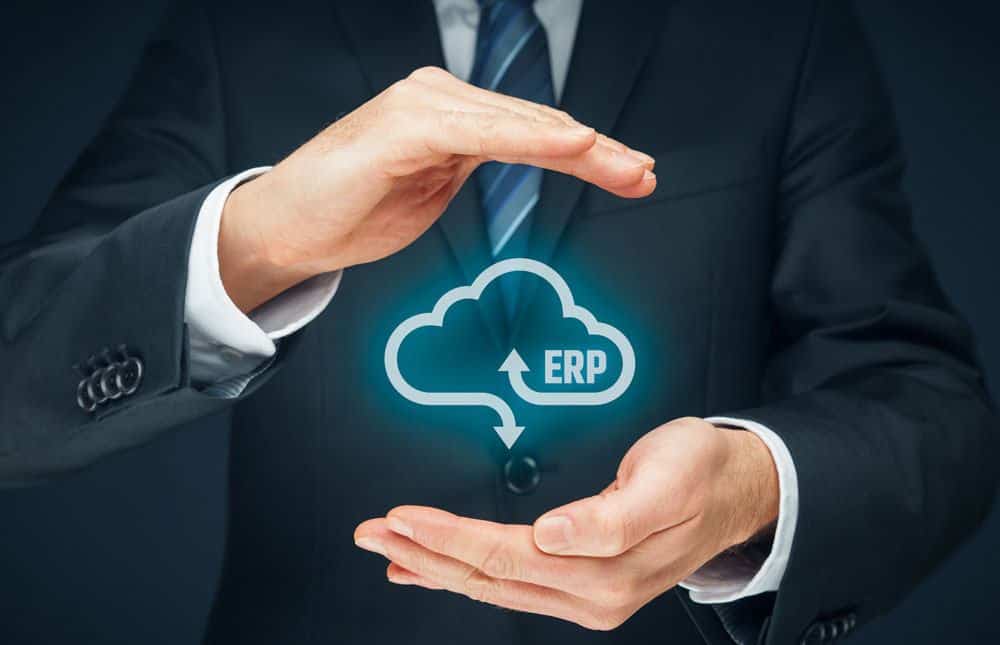Your business is in growth mode, and your accounting software or outdated legacy system can no longer keep up with the number of customers, transactions, inventory, and sales you have – now what?
It’s common knowledge that the next step up from an accounting solution is enterprise resource planning (ERP) software. Depending on how familiar you are with enterprise technology, you may already know that ERP software is designed to help you manage working capital, reduce costs, automate key processes, increase compliance, and accelerate revenue growth.
But what you might not know is how. How does ERP improve business management? How does ERP streamline processes and reduce costs? How does ERP help you handle rapid growth?
That’s what we are going to cover in this blog. Keep reading to find out how integrated ERP software can transform your operations and deliver results. We have also included insight into what types of ERP solutions are available, from large enterprise systems to affordable but scalable solutions for the SMB, a list of 9 criteria to evaluate when selecting an ERP solution for your business, and a guide to cloud ERP comparison from the top two mid-market offerings: SAP Business One and NetSuite.
How ERP Software Delivers Results
An ERP system is comprised of common functional areas of a business, from accounting and sales to inventory and customer service. Some solutions are more comprehensive than others and are built to work with specific industries. For example, you can find ERP systems that include modules for supply chain management, warehousing, field service, purchasing, maintenance tracking, and more.
What has made ERP software so successful is the way it stores data in a centralized location. All ERP systems use a centralized database to support multiple functions across an organization, bringing data together to automate processes, improve communication, and simplify business workflows. This single, integrated platform allows users from every business unit, from accounting to sales, to share information, gain better visibility into performance, and do their jobs more efficiently.
Another reason why ERP software is the go-to for all growing businesses is process automation. Manual, time-consuming tasks can keep a company from growing, so ERP systems were created to automate routine business processes. If you are currently running multiple systems to manage your business, think about how much time and energy is spent physically consolidating data for financial reports. When your accounting system is not integrated with the rest of your day-to-day business, you’re not just using up valuable resources – your risking accuracy. That means you might be making important business decisions based on bad data.
Between automation and centralized data, ERP software is all about efficiency. Removing the obstacles of disparate data and manual processes sets your business up for:
- Highly productive employees with the right tools to do their jobs
- More resources spent on analysis and improvement
- Cost savings based on process efficiency
- Improved traceability and quality control
- Faster, more accurate financial and operational reporting
- Better customer service leading to more sales
- Impactful decision making based on real-time data
The Scale of ERP Systems
According to Gartner, ERP represents the single largest category of enterprise software spending. At $37.3 billion in 2018, Gartner forecasts that this figure will grow at an annual rate of 6.8% through 2022 on a constant currency basis. As the market for ERP suites continues to shift from on-premises deployments to cloud services, there are more options than ever for enterprises of all sizes and complexities.
ERP for Large Enterprises
Back in the day, ERP software was only designed for large enterprises looking to run their entire operation from a single software framework. Bigger businesses needed the best systems and processes in place to effectively support higher volume transactions, multiple locations and geographies, and complex financials and operations. Before cloud computing came into play, these ERP systems required a considerable investment in hardware and a ton of expensive customization. While cloud-based solutions have made deployment and management more affordable, large-scale ERP systems like SAP S/4HANA, Oracle E-Business Suite, or JD Edwards Enterprise are still complex software installations that require a significant investment of money, time, and resources. They have all the features and scalable functionality built-in to operate a large enterprise, including module solutions to support local divisions or regional factories.
Mid-market ERP for Small to Midsize Enterprises
Nowadays, the ERP technology landscape has diversified to accommodate businesses of all sizes. The term “mid-market” is very broad and applies to companies with 11-10,000 users with less than $1 billion in revenue. With that in mind, mid-market ERP software is designed to fit a wide range of business needs and functional requirements. ERP solutions that fall in this bucket include basic functionality for financial management, customer relationship management, inventory, human resources, project management, and analytics. The reason why this type of software works for most businesses is due to its ability to scale and adapt with minimal customization. There are also a ton of deployment options and industry-specific features available to fit every business.
What to Look for in a Mid-Market ERP Solution
Mid-market ERP systems are typically in the highest demand. It can be easy to get caught up in new products or features, but ERP technology and data management experts can help you assess what’s best for your business, your ERP system, and your goals. Ensuring you partner with a business application delivery team that has years of experience and best practices working with multiple ERP systems and vendors will ensure a successful ERP solution implementation that meets your needs and business requirements today and in the future.
Read: How to Choose an ERP Solution Provider for the Life of your Business
Once you know that your business is ready for a mid-market ERP solution, you need to devote some time to requirements gathering and software selection. In our experience, this is the best way to find a solution that works for your business, which will lead to successful implementation and adoption.
While every business we have worked with has had different operational needs, the criteria in which they evaluate ERP software is always the same. To be successful, here is a list of the 9 most important factors to consider when assessing what you need from a mid-market ERP solution.
- Setup Time
- Deployment
- System Scalability
- Integration
- Customization
- Reporting
- Upgrades
- Pricing
- Support
Start the ERP Selection Process Today
At Clients First, we focus on finding the right enterprise software and technology to manage your financial and business management needs. That means we have worked with many different ERP systems over the years and can confidently say that when it comes to mid-market ERP, SAP Business One and NetSuite are always in the same room.
Both SAP Business One and NetSuite are designed to suit the needs of simple and complex small to midsized companies. Each of these products was built to break down silos, adopt dynamic business processes, deliver optimal experiences, and improve the way you do business. While the base model of both ERP solutions are somewhat similar in how they function inside your business, the one you choose depends on several factors, from deployment preferences to budget and the amount of customization required.
Whether you have just started your cloud ERP comparison process or you’re deep into ERP selection, we’ve done some of the heavy lifting for you. We compared both solutions based on the 9 criteria we listed above. For this (and more helpful tips), download the full whitepaper below.



